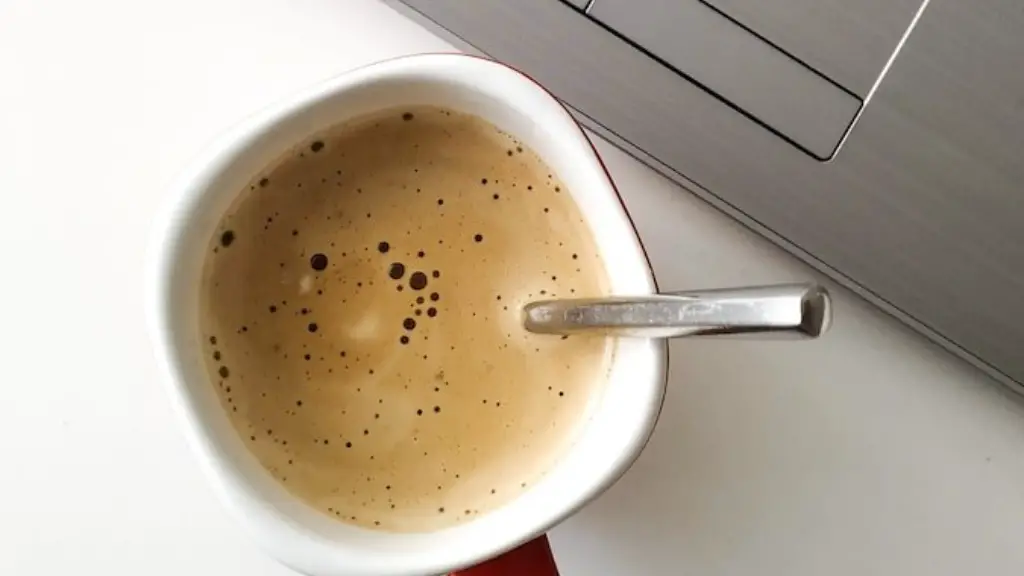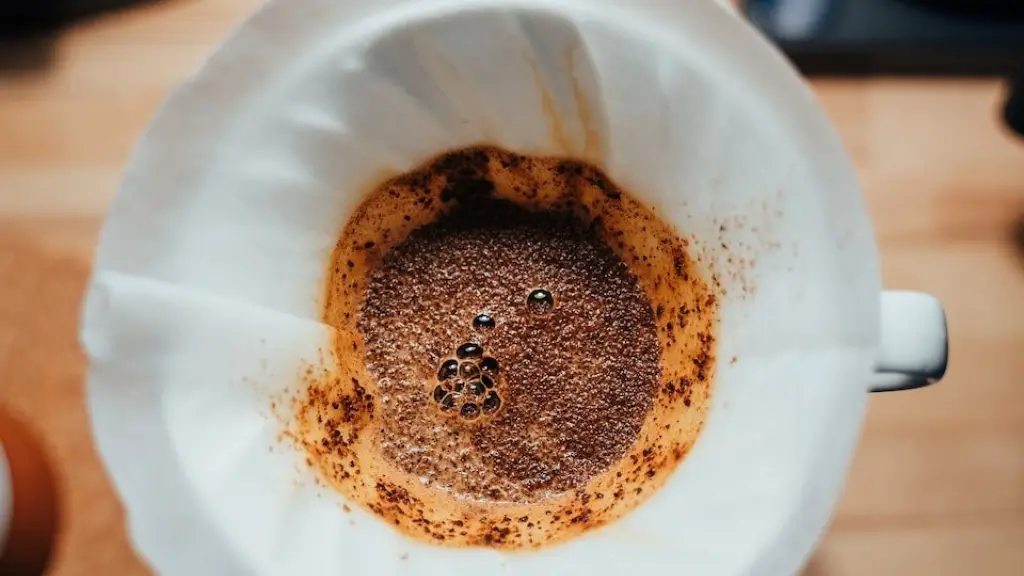It is undeniable that coffee has become a staple in many people’s lives. Many people rely on it to help them stay alert and energized during their daily routines. But how much is too much? Drinking too much coffee can have serious health implications, including kidney pain.
Caffeine, which is the active compound in coffee, is known for stimulating the central nervous system and making people more alert and prepared for the day. It works by blocking the action of adenosine receptors, thus preventing fatigue. Unfortunately, caffeine can sometimes cause side effects like dehydration, insomnia, increased blood pressure, irregular heartbeats, and in some cases, kidney pain.
What contributes to this? The combination of too much caffeine with other unhealthy lifestyle habits can increase the risk of kidney pain. For instance, people who drink high amounts of caffeinated beverages and don’t get enough sleep or exercise may be at risk of developing kidney headaches and other issues. Similarly, drinking coffee on an empty stomach can also cause digestion issues and can tax the kidneys.
It is important to keep in mind that everyone has different thresholds and that everyone reacts to coffee differently. While some people may be able to drink a few cups throughout the day without any issues, others may develop adverse reactions after just one or two. Therefore, it is essential to pay attention to one’s own body and adjust coffee consumption accordingly.
Experts recommend reducing the number of caffeinated beverages and not exceeding more than 300-400 milligrams per day. Additionally, making sure to stay hydrated, exercise, and get enough sleep can help reduce the risks associated with coffee consumption.
It is easy to get into the habit of relying on coffee for energy. However, it is important to take into account potential risks and to be mindful of how much coffee is being consumed. While coffee can be beneficial in small amounts, drinking too much can lead to issues like kidney pain.
Health Benefits of Coffee
In moderation, coffee can provide a number of health benefits. Studies have found that coffee can reduce the risk of conditions such as stroke, type 2 diabetes, and some forms of cancer. It’s also a potent source of antioxidants, which can defend the body against cellular damage.
Coffee has more benefits than just the physical ones too. Studies have found that drinking coffee can boost mental performance and alertness. In addition, most people find coffee to be a great way to start the morning and a popular way of socializing with their friends.
When consumed in moderation, coffee can also be a healthful addition to any lifestyle. That being said, it’s still important to pay attention to how much coffee is being taken. For instance, having more than four cups per day may start to negate the health benefits of coffee.
Making small changes to coffee consumption is key to having healthier habits. For example, adding milk or nut milk can provide additional nutrients and can help to reduce the effects of caffeine. Similarly, omitting certain ingredients like sugar and cream can help to reduce calories and fat.
Risks of Caffeine
In addition to too much coffee leading to kidney pain, people should also remember that caffeine is a powerful stimulant. As such, it can overstimulate the body when taken in large quantities. This can lead to restlessness, anxiety, and inability to focus.
Caffeine use can also lead to physical exhaustion and restlessness, which can contribute to sleep disturbances. High doses of caffeine have also been linked to increased blood pressure, heart palpitations, and other heart-related health issues.
It is also important to take into account potential interactions with certain medications. For example, some anti-depressants and migraine medications can interact with caffeine in potentially dangerous ways.
For people who are pregnant or breastfeeding, caffeine should be completely avoided or consumed in very small quantities. It is also highly recommended to consult with a doctor or health care practitioner before increasing caffeine intake or discontinuing it completely.
Coffee Alternatives
Some people may find that they need an alternative to coffee to get them through the day. There are many natural ways to boost energy and alertness. For example, green tea, matcha, and apples can all provide a natural source of energy.
Exercise can also be a great alternative to coffee. While it may require more effort than just sipping on a cup of coffee, it can provide more sustained energy and alertness throughout the day.
Various supplements and vitamins can also be used to provide natural energy. B-vitamins are known for providing energy and can be found in various foods like eggs, nuts, and whole grains. Additionally, there are natural supplements specifically designed to provide energy and alertness.
Tips to Decrease Caffeine Consumption
If someone is looking to reduce their caffeine intake, there are some simple tips that can help. For instance, cutting out late-day coffee can help to set a limit on how much caffeine is being consumed in one day. An alternative would be to switch to decaf or caffeine-free coffee.
It is also important to remember that there are many non-coffee sources of caffeine. Things like energy drinks, tea, chocolate, and some types of soda all contain caffeine, and it can be easy to underestimate how many of these things are being consumed.
To reduce caffeine intake, it can be helpful to look for alternative drinks and snacks. Be mindful of added sweeteners and sugar, which can contribute to the effects of caffeine and may provide additional side effects. Additionally, drinking more water throughout the day can help to counteract the effects of caffeine.
Creative Ways to Enjoy Coffee
For those who still want to get the benefits of coffee, but without the health risks, there are a few creative alternatives. For instance, adding flavored syrups to coffee can make it more palatable, while also adding extra sweetness and nutrients. For those who would like to avoid caffeine altogether, there are caffeine-free coffee substitutes such as chicory.
Iced coffee is another great way to enjoy coffee. Iced coffee can still offer the same health benefits as hot coffee and can be made with less caffeine. For those who find coffee too acidic, adding a small amount of grass-fed butter or coconut oil can help to reduce the acidity.
Cold-brewed coffee is another creative way to enjoy coffee without the jitters. Cold-brewing involves steeping coffee grounds in cold water for up to 24 hours, resulting in a smooth and mellow cup of coffee.
Coffee is a great way to start the day, but it can be easy to drink too much and end up with unwanted side effects. Paying attention to how much coffee is being consumed and switching to alternative drinks and snacks can help keep coffee habits healthy and enjoyable.





